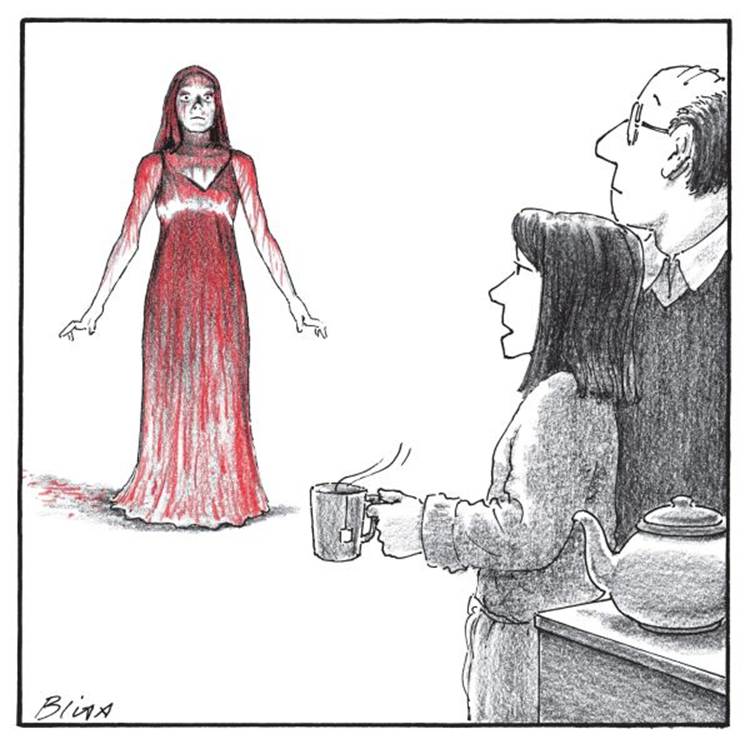COMMUNITY OF DIRECTORS, 'WISE GUYS', SEEING A JOHN WAYNE WESTERN w/HIS FATHER, ETC.
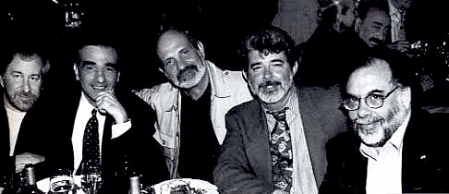
Yesterday, Business Insider's Jason Guerrasio posted an interview with Brian De Palma. At one point, Guerrasio asks De Palma whether there was ever a competitiveness with the other directors he was friends with. "People have always asked that," replies De Palma, "but even with our group in the '70s, as successful as those directors were, there was never a competitiveness. It's kind of odd. We were young directors trying to get into the Hollywood system on some level and we all basically met at Warner Bros., and all had disastrous experiences, which I guess bound us together for life. We used to hang out together in Hollywood. We were young men. Going out to dinner together. I miss that. I remember going to the premiere of Goodfellas, so that was the '90s, and by then we were beginning to disperse. We were going into different areas and weren't that close anymore, in the sense of calling each other up and saying, 'Let's go have dinner.' I missed that and that's when I went and assembled this next group."
When asked if Francis Ford Coppola ever wanted De Palma to get involved with Zoetrope, De Palma replies, "Marty and I went and saw Zoetrope. I remember seeing the flatbed editing machines. Marty and I went because Marcia Lucas was editing Marty's movie. She edited Taxi Driver. So we went up and stayed with George. But what Francis was doing wasn't for me."
Late in the interview, De Palma explains why he wished he hadn't gone forward with Wise Guys: "The studio changed their minds and didn't want to make it. They just wanted us to go away. I should have just taken my money and walked instead of dealing with a studio that didn’t want to make the movie."
And then the interview ends with this excerpt:
BI: Legend has it you were very hard on George the first time he showed you guys "Star Wars."De Palma: That is not correct. [Laughs] I am sarcastic. I am considered the class clown, but a sarcastic clown. So I would make fun of certain things. Because everyone would take this stuff too seriously.
BI: So you were just messing with him about not liking the opening crawl?
De Palma: No, the crawl didn't make any sense at all. And I kept kidding him about the Force. I was like, "What is the Force?" [Laughs] But you have to understand, we used to look at each other's movies in order to be helpful. We might say some things that weren’t nice. You know, I remember reading an account where Marcia [Lucas] was very upset with me. And I don't remember this, but there was an account where Marcia told me, "You've hurt George's feelings and you should be gentle with him." I don't remember that. I really don't know what they're talking about. I was basically myself. The thing the guys could always count on with me is I would say what I thought. I wasn't holding back. I remember having a big discussion with Steven about “Close Encounters.” There were some sections I thought didn't work. And this was considered a crowning success of his career. And I was like, "I don't know, this doesn't really work for me." [Laughs]
BI: Do you remember a part that didn't work for you?
De Palma: I don't remember. But I remember going to a screening up on 55th street and afterward going to him and saying, "I don't know, Steven." But I think we have to do that, and I do it with Noah and Jake and these directors. If they are going to show me something or I'm going to show something to them, I want them to say what they think and not what will make me feel better.
Elsewhere, De Palma explains why he was curiously absent from two specific events that invloved his fellow "movie brat" friends, including presenting Martin Scorsese his first Oscar: "I was always the anti-establishment member of the group. I've never been nominated for an Oscar. I've never worked within the Hollywood establishment on any level. I made a lot of people very mad."
And in this final excerpt, De Palma talks about seeing a movie with his father, which leads into a question about Home Movies:
BI: One thing that grabbed me in the documentary was your openness about your relationship with your father. [Who was never around during De Palma's youth and, the director says, cheated on his mother with other women.] Do you think the stories you tell are based on your feelings toward him?De Palma: Well, we're all a product of our upbringing to some extent. But my older brother was very influential too because he sort of represents that egomaniac that appears in many of my movies. My father was basically a very hardworking orthopedic surgeon, very much involved in his work. Whatever happened between he and my mother by the time I was born, they were at odds with each other and just hung in there until I went to college, basically. So it's interesting, the times I spent with my father I can count on one hand. I remember going to see a John Wayne Western with him.
BI: Which one?
De Palma: “The Horse Soldiers.” That's about it.
BI: But in “Home Movies,” the character Denis peeps on his father, which you say is based on you confronting your father with a knife and accusing him of adultery. Did doing that scene close a chapter in your relationship with him?
De Palma: I actually approached it as a comedy. A bizarre comedy. It all happened, but by the time I made the movie I saw the absurd aspects to it.
Updated: Saturday, June 4, 2016 3:39 PM CDT
Post Comment | Permalink | Share This Post




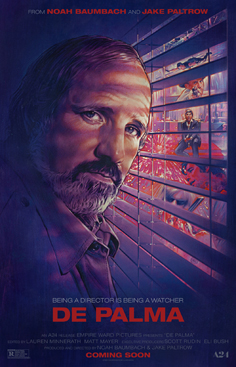 Two terrific interviews with Brian De Palma popped up yesterday. One is yet another conducted by Jim Hemphill, this time focusing on De Palma's work with actors, for
Two terrific interviews with Brian De Palma popped up yesterday. One is yet another conducted by Jim Hemphill, this time focusing on De Palma's work with actors, for 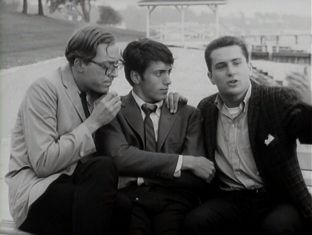 Looking to offer a more thorough Brian De Palma retrospective,
Looking to offer a more thorough Brian De Palma retrospective, 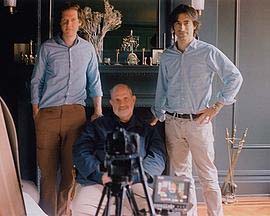 Jim Hemphill, who wrote the
Jim Hemphill, who wrote the 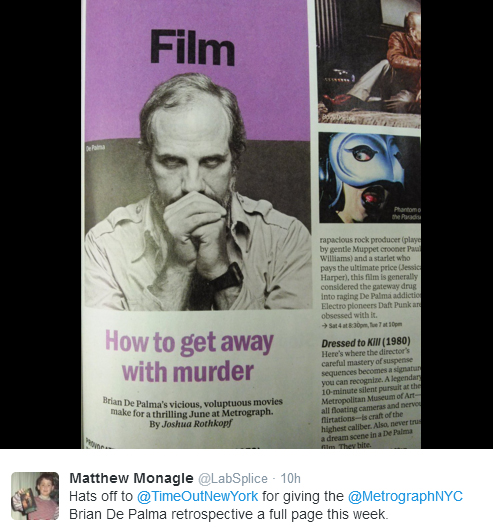

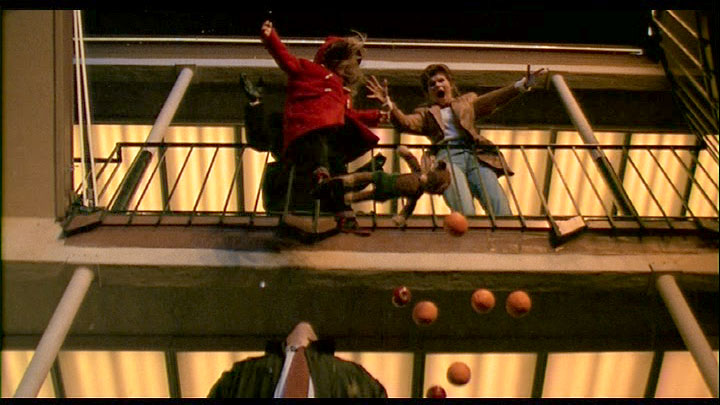
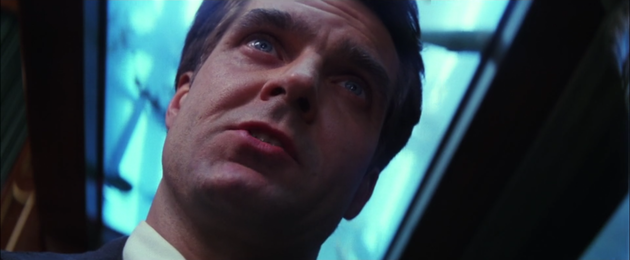
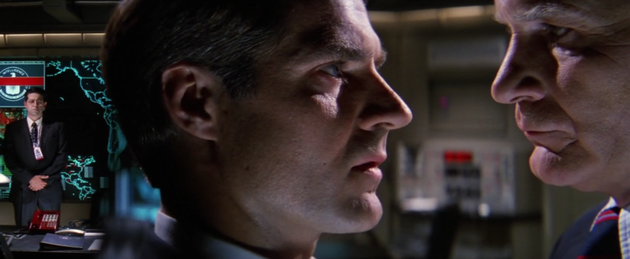

 Screenwriter/director Jim Hemphill has
Screenwriter/director Jim Hemphill has 